Introducing MMSA: The “Virtual City” Driving Government Efficiency
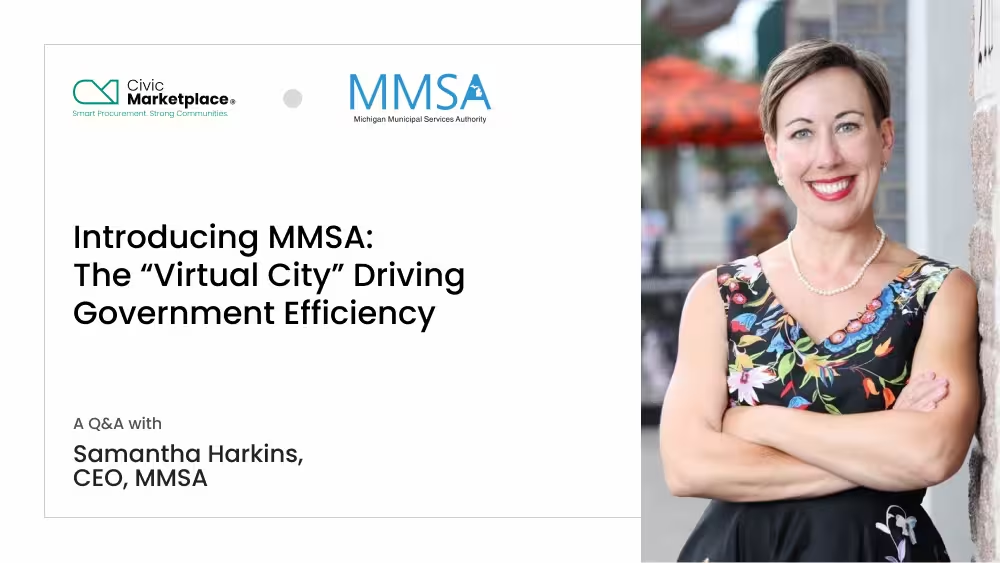
Through its partnership with the Alliance for Innovation & Civic Marketplace, Michigan Municipal Services Authority (MMSA) is helping Michigan communities access competitively bid contracts, simplifying purchasing, and broadening their supplier networks to strengthen local governments. To read more about the partnership click here.
Q: Can you tell us a bit about yourself and the Michigan Municipal Services Authority (MMSA)?
Samantha: I’m Samantha Harkins, CEO of the Michigan Municipal Services Authority (MMSA). MMSA is a unique organization, what we call a “virtual city”, created under Michigan state statute. We can do anything a city can do, but we’re not a city in the traditional sense. Our mission is to create efficiencies in government, streamline processes, and provide value to local units of government across Michigan. I've been working with communities in Michigan for 20 years and was involved in the legislative process when MMSA was created. As the CEO, I’m focused on building programs that make life easier for local governments.
Q: For those new to the concept, what is a cooperative contract and how does it differ from standard public procurement?
Samantha: A cooperative contract means that MMSA can conduct a competitive bidding process (an RFP) on behalf of other government entities. Our process satisfies local governments’ legal bidding requirements, so if a city’s ordinance says an RFP is needed, MMSA can do that for them. This saves local governments from having to run their own time-consuming RFPs and ensures compliance with procurement rules. Once we’ve competitively bid a contract, any eligible local government can “piggyback” on it using the contract terms and vendor without repeating the process themselves.
Q: Who is eligible to use MMSA’s cooperative contracts? And where can they be found?
Samantha: Any governmental unit in Michigan can use our contracts: cities, villages, townships, counties, school districts, water authorities, library authorities, and more. We mainly work with cities, villages, townships, and counties, but the contracts are open to all local government organizations in Michigan. Through our partnership with Civic Marketplace our cooperative contracts can be found on the Civic Marketplace platform. We currently have our IT and Cybersecurity Assessment Services contract awarded to Dewpoint available. As we grow we will continue to place contracts on the Civic Marketplace platform.
Q: What are the main benefits of using cooperative contracts for local governments?
Samantha: The biggest benefit is efficiency. Running an RFP is a huge amount of work – reviewing dozens of lengthy proposals, scoring them, and managing the process. Large cities might have purchasing departments, but smaller communities often don’t have the resources. Cooperative contracts let us (MMSA) do the heavy lifting, so local governments can focus on their core work. It also allows for more innovative and creative solutions, since we can aggregate needs and think at a broader scale. Plus, our contracts are written by some of the best legal minds in government procurement, ensuring strong protections and flexibility for users.
Q: How do cooperative contracts benefit suppliers, especially smaller suppliers?
Samantha: Cooperative contracts are also a win for suppliers. Instead of responding to hundreds of RFPs from individual small entities, suppliers can focus on one serious, well-structured RFP. This levels the playing field for smaller and more diverse suppliers, who might not have the resources to compete in dozens of separate procurements. It encourages more creative, tailored solutions and brings a wider range of suppliers into the process.
Q: Can you walk us through the step-by-step process of how a cooperative contract is created and used?
Samantha: Here’s how it works:
- We identify needs by talking with local government professionals and suppliers.
- We conduct research and draft an RFP, which is posted publicly and shared with partners.
- Suppliers submit proposals. Our board reviews and scores them, often interviewing finalists.
- Once a supplier is selected and the contract is executed, any eligible local government can sign on.
- Each local government works directly with the supplier for their specific needs, but benefits from the standardized pricing and terms we’ve negotiated. MMSA handles administration and billing, and we’re there to resolve any issues that arise.
- MMSA is then able to share our awarded contracts on a broader scale with others through our partnership with Civic Marketplace. The contract documentation is uploaded to the Civic Marketplace platform for members to utilize, with the awarded suppliers’ contact details also listed.
Q: Can you share some recent examples of MMSA cooperative contracts, what you’re calling the MMSA Awards?
Samantha: We recently awarded a managed IT and Cybersecurity Assessment Services to Dewpoint, a Michigan-based supplier. Dewpoint already provides all IT services for the City of Grand Rapids and works with more municipalities in Michigan. Now, through our contract, smaller communities can access the same expertise. We’re also finalizing contracts for income verification and payment assistance for utilities, and for IT program and project management. Both are designed to address real pain points raised by local governments. The Dewpoint contract is already available in the Civic Marketplace platform, and the other two contracts will be uploaded to the platform once they’re complete. As a result communities across the country will have access to these services as well.
Q: What’s next for MMSA, and how can local governments and suppliers get involved?
Samantha: Our biggest challenge is awareness. Many local governments still don’t know about MMSA or how cooperative contracts can help them. We’re working to change that through partnerships like this one with Civic Marketplace. Any local government in Michigan can take advantage of our contracts and there’s no membership fee or dues, just a simple administrative cost built into each contract. We’re excited to keep building recognition and making procurement easier, more innovative, and more equitable for everyone.
To learn more about how cooperative contracts work, watch our explainer video here.







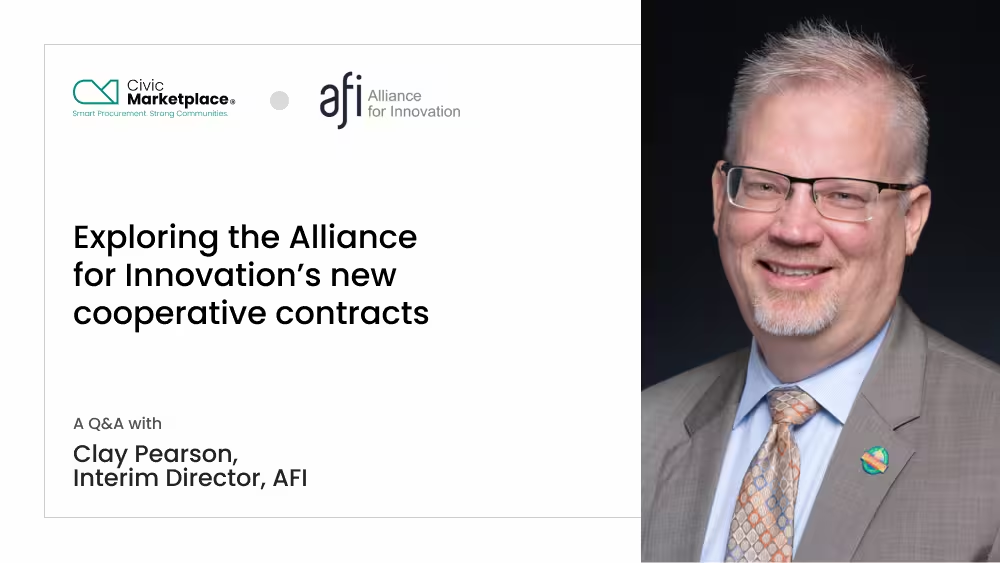
.avif)
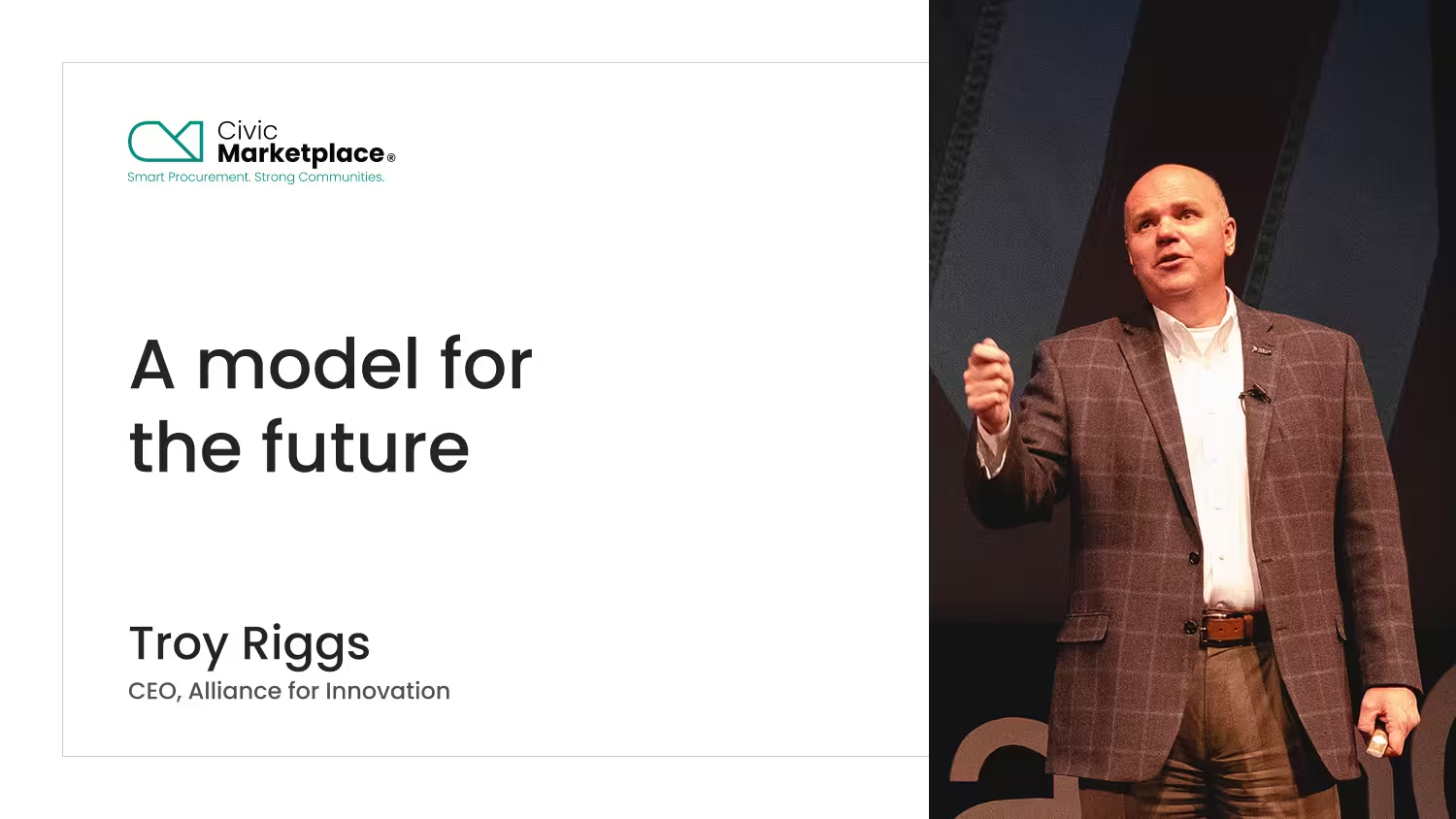
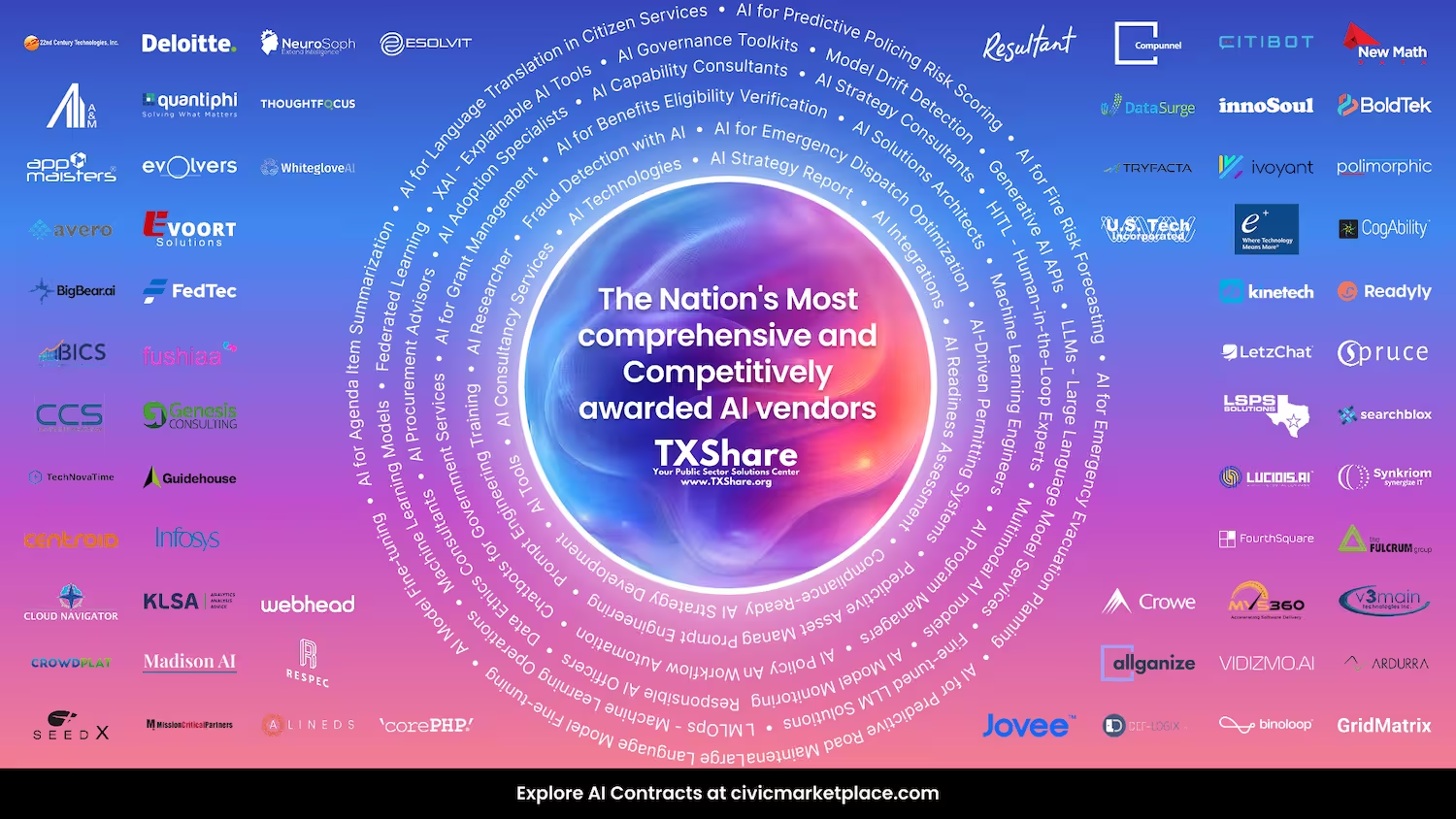
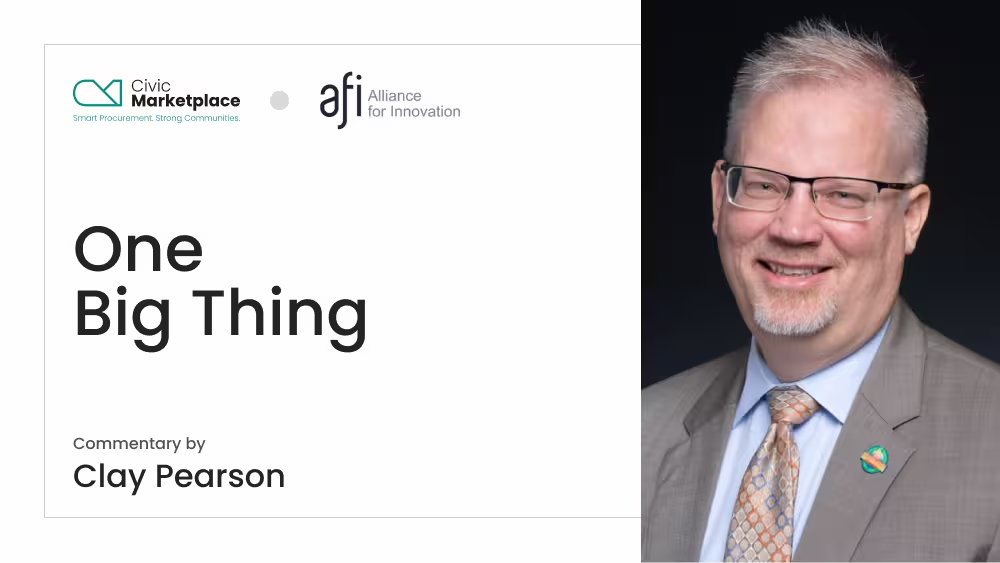
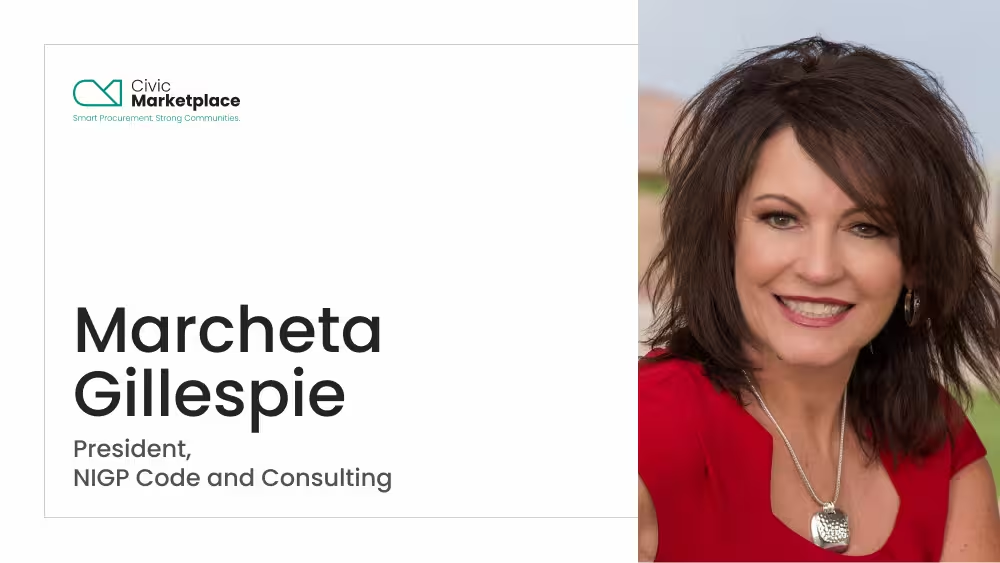
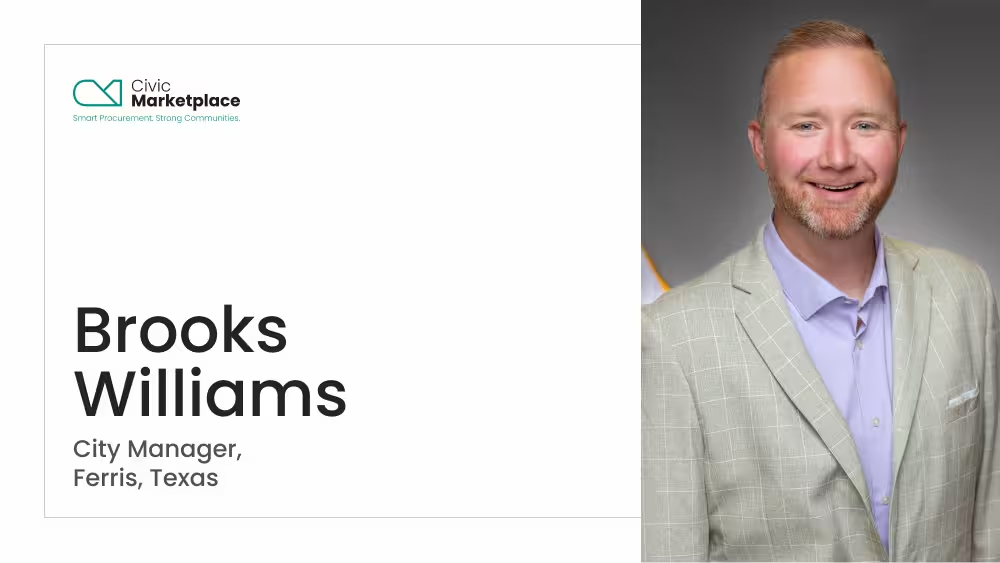
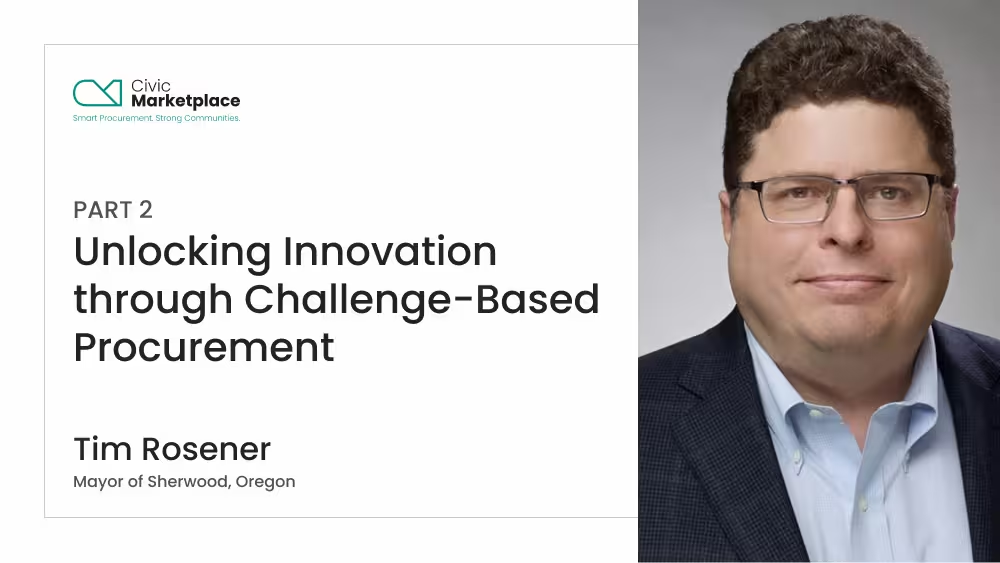
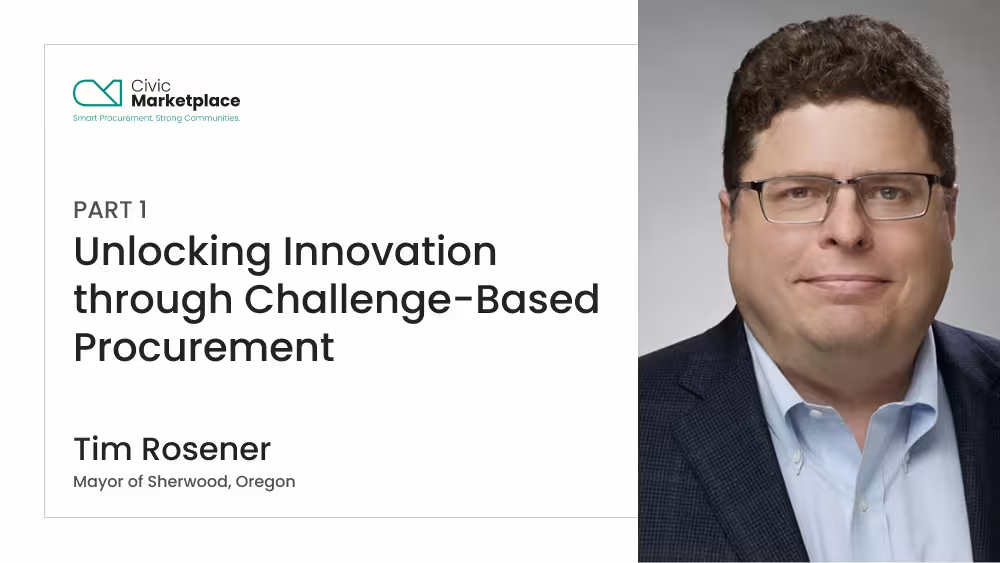

.avif)